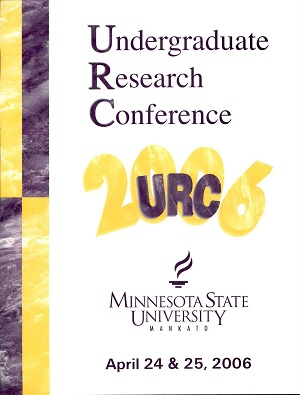Anti-Machine Breaking Propaganda in Early Nineteenth-Century England
Location
CSU 284
Start Date
24-4-2006 3:15 PM
End Date
24-4-2006 5:00 PM
Student's Major
History
Student's College
Social and Behavioral Sciences
Mentor's Name
Larry L. Witherell
Mentor's Department
History
Mentor's College
Social and Behavioral Sciences
Description
After the introduction of machinery in agricultural and the textile trades in the late eighteenth century, workers often reacted by attacking and destroying the new machinery. This machine breaking ended in the 1830s with a surge of religious, political and working class propaganda. This paper will identify and explain those factors that brought about an end to the working class machine breaking in the early 1830s. This paper will use political and religious pamphlets, working class and radical publications. The Times [of London], parliamentary debates, memoirs and autobiographies, biographies and other secondary literature.
Anti-Machine Breaking Propaganda in Early Nineteenth-Century England
CSU 284
After the introduction of machinery in agricultural and the textile trades in the late eighteenth century, workers often reacted by attacking and destroying the new machinery. This machine breaking ended in the 1830s with a surge of religious, political and working class propaganda. This paper will identify and explain those factors that brought about an end to the working class machine breaking in the early 1830s. This paper will use political and religious pamphlets, working class and radical publications. The Times [of London], parliamentary debates, memoirs and autobiographies, biographies and other secondary literature.
Recommended Citation
Unetic, Rebecca. "Anti-Machine Breaking Propaganda in Early Nineteenth-Century England." Undergraduate Research Symposium, Mankato, MN, April 24, 2006.
https://cornerstone.lib.mnsu.edu/urs/2006/oral-session-I/5




